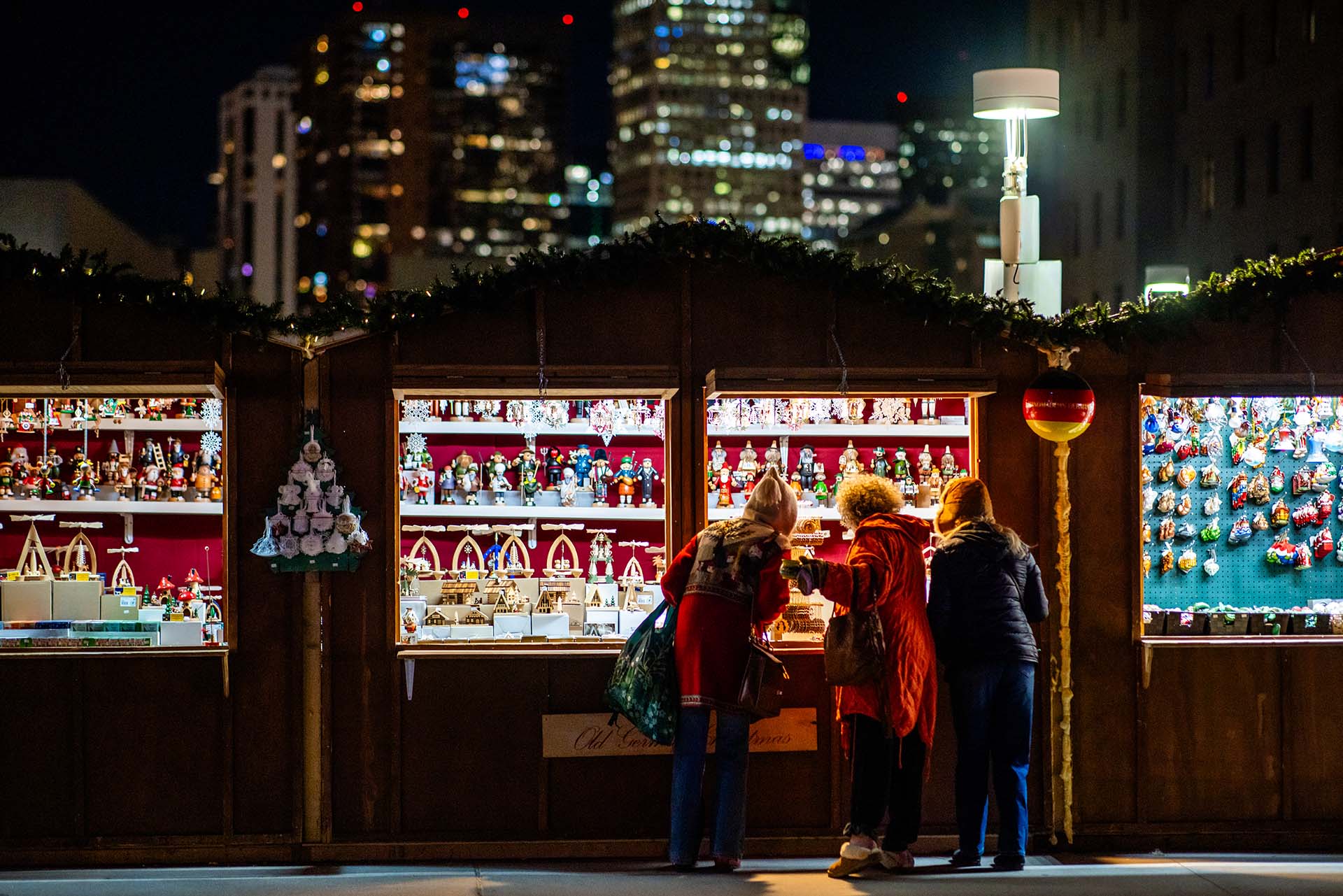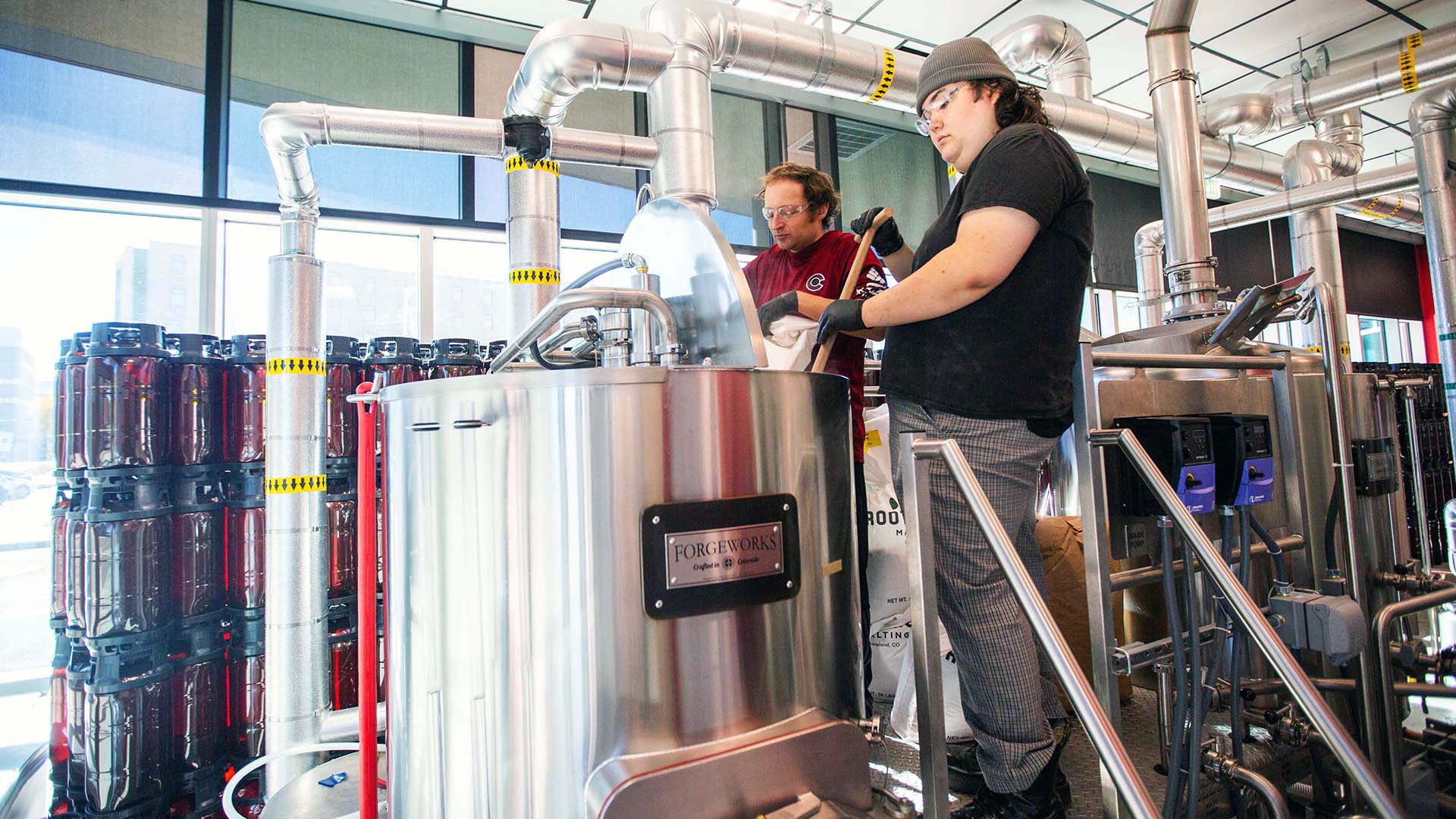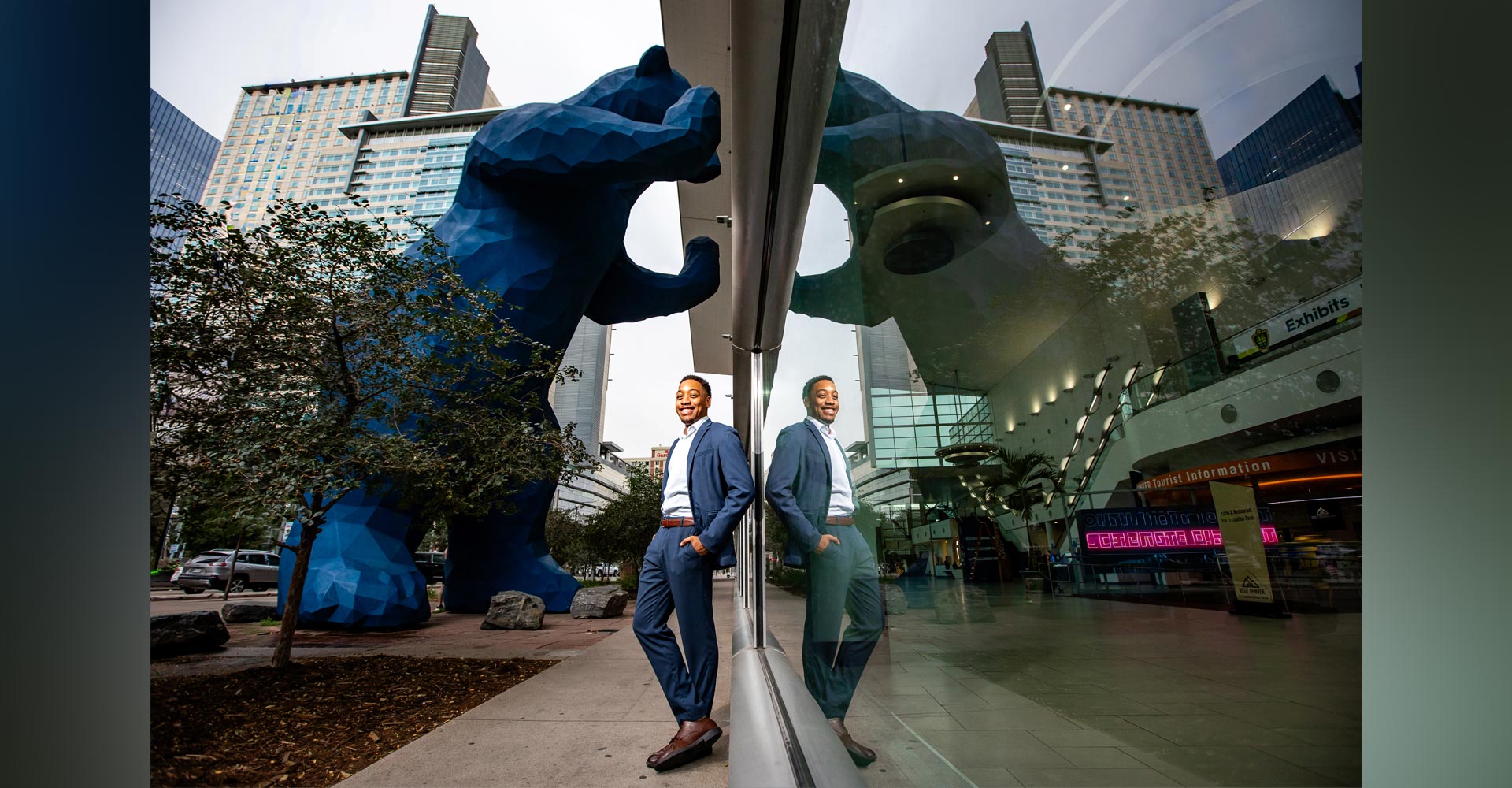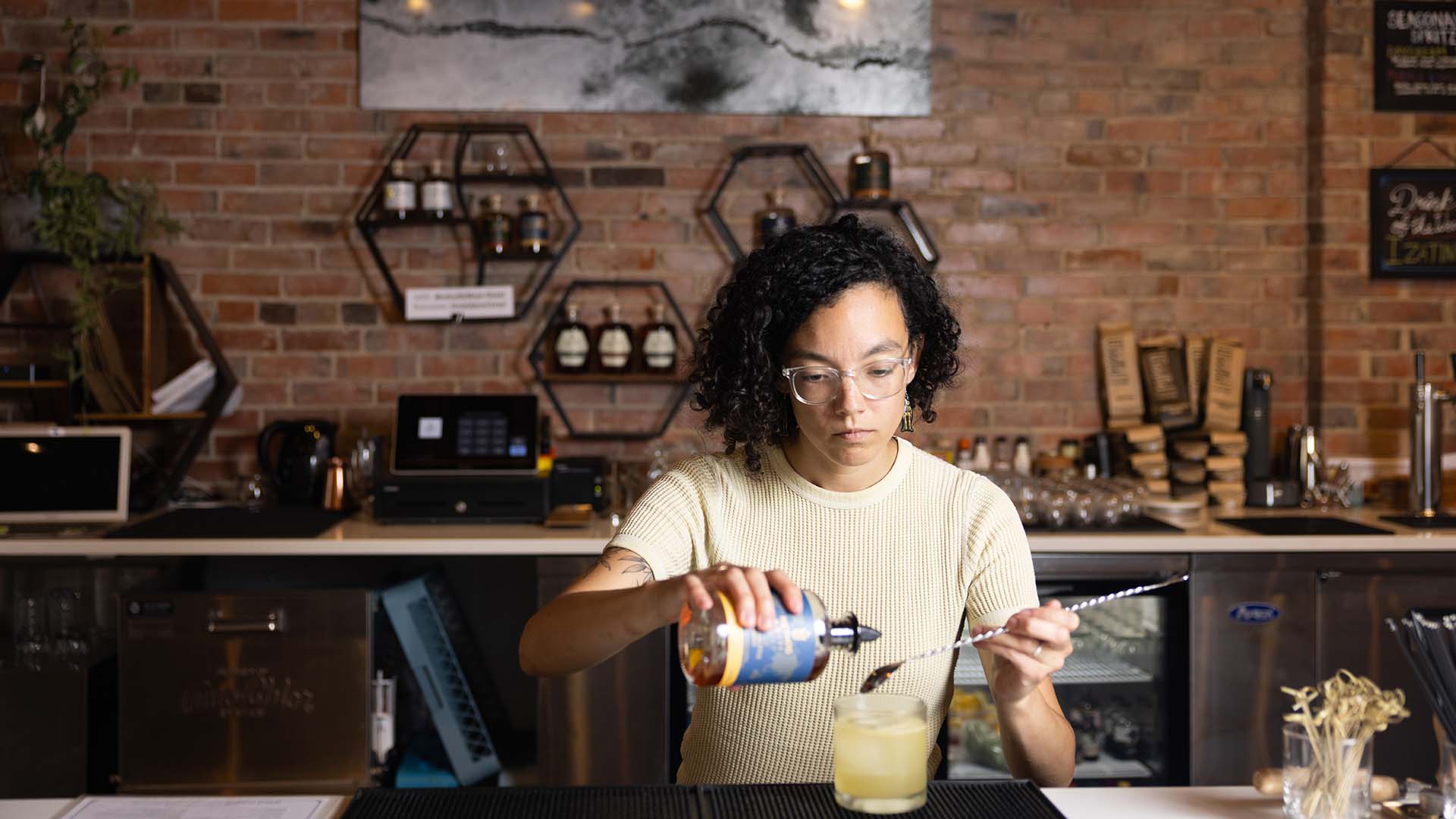Beer Here!
Roadrunners tap into booming brewing industry to become tops in hops.
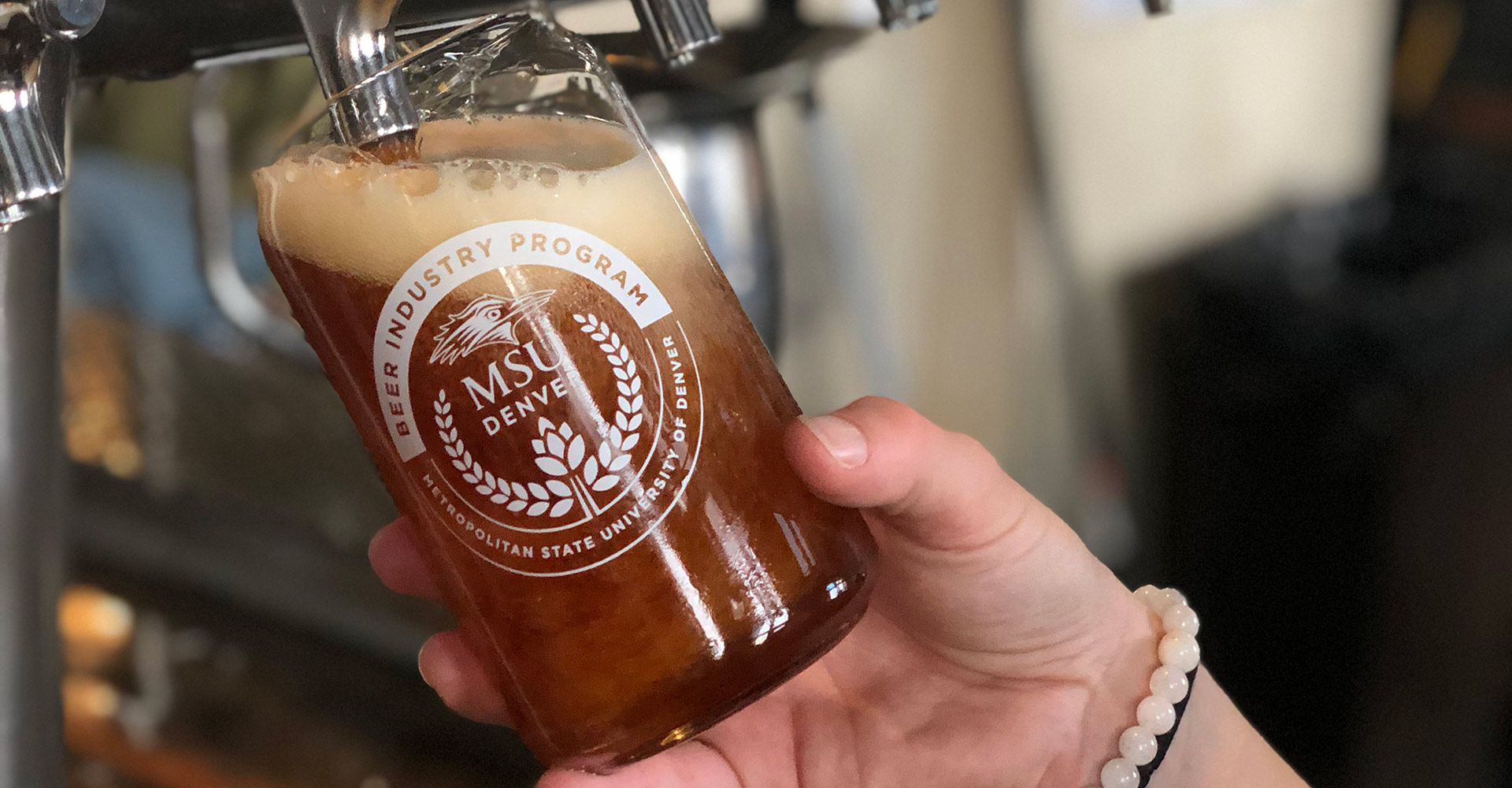
In heaven, there is no beer – if you believe the song, at least. But that’s not the case for Colorado’s ever-expanding brewing industry, where entrepreneurs of elixir continue tapping into opportunity.
The decade-long-plus “craft-beer revolution” is why, in an afternoon in Denver, you can visit three establishments along Broadway that start with the letter B (Baere, Banded Oak, Black Project), a heavy-metal taproom (aptly named TRVE) and wind down with a cold one and crochet at Grandma’s House – all within 3 miles.
And though there are 6,700-plus breweries in the U.S., the market isn’t saturated, says Scott Kerkmans, director of Metropolitan State University of Denver’s Beer Industry Program – it’s hopping.
“We’ve got more than 10,000 wineries nationwide that are doing just fine. There’s still a ton of room for growth in beer,” he says.
But he adds a caveat: “In Colorado, though, you have to be purposefully placed and marketed to the right customer. You can’t just come in, put out average product and succeed. You have to do something different; you have to focus on innovation and meaning in what you’re doing.”
The stats behind the boom are staggering. According to Bureau of Labor Statistics data, the number of breweries in the United States increased more than fivefold from 2010 to 2016. During this time, breweries accounted for more than half of the employment growth within the beverage-manufacturing industry and a 135-percent increase in the number of suds-related jobs.
With this explosion has come new challenges – and opportunities that Roadrunners are rising to meet.“The brewing industry is at an interesting crossroads,” Kerkmans says. “Larger producers are starting to lose market share to mom-and-pop tasting rooms and brewpubs. It’s a challenging time as they have to figure out how to compete against similar craft brands.
“In our program, we give students the comprehensive tools to navigate this new landscape at any level.” In fall 2015, students could start studying beer at MSU Denver – formally, at least. The program’s launch coincided with the resurrection of Tivoli Brewing Co., which traces its 150-year heritage back to before Colorado became a state.
Today, the on-campus brewery and the University maintain a unique relationship that pairs well together. Students get access to hands-on learning in the 30-barrel brewhouse and bottling operations, while the brewery benefits from collaborations on batches such as Roadrunner Red and a pipeline for potential employees.

The pairing doesn’t stop there, though. Kerkmans, who was hired to conduct a feasibility study to determine the program’s viability before its launch, found the effort was the perfect recipe for collaboration.
“We knew the latent industry demand for employees was there,” he says. “It was a leap of faith by senior leadership to take a chance on this, but it’s brought us to where we are today.”
Different by design
The proof is in the mash, so to speak.
“Our curriculum is unlike anything in beer education, and it’s one of the things we’re proudest of,” Kerkmans says. “What we do better than the vast majority of schools is prepare students with the tangible skills that allow them to add value to an employer the first week they’re on the job.”
The program is different by design: Based in hospitality – instead of, say, chemistry – the focus is on the broad array of careers in the industry. Kerkmans points to his own time with Alaskan Brewing Co. as an example.
“We had about 120 employees, and about seven of them were in the labs and brew deck,” he says. “That leaves 113 other positions, with ample opportunities for our grads to focus on.”
“Students get an unrivaled educational opportunity to test commercial beer, working side-by-side with industry clients, while the University generates revenue from these kinds of operations. It’s really a win-win-win situation.”
That’s not to say the science of the brew gets overlooked. Far from it – interdisciplinary expertise led to MSU Denver becoming one of only seven universities offering a four-year diploma in beer as certified by the Master Brewers Association of America.
Whether it’s understanding of chemistry to assess the amount of oxygen in a batch, engineering the system or the business sensibilities to succeed, Kerkmans says the need for a deeper understanding is appreciated by the industry.
“In the past, you’d just hire your homebrewing buddy,” he says. “Today, you need a comprehensive education to advance your product.”
Innovation isn’t just in the classroom, either – several endeavors position MSU Denver as an industry leader and partner. The program now offers fee-for-service options for brewers across the state and country to make better beer.

The result of the first phase of MSU Denver’s program expansion, quality-analysis/quality-control lab services allow brewers to test their wares or run panels in the sensory lab to get insight into taste. This means clients can pilot a new recipe without potentially wasting resources, along with taking advantage of the intellectual firepower of the University’s experts.
“Things can get cost-prohibitive pretty quickly,” Kerkmans says. “With this setup, brewers don’t have to sink hundreds of thousands of dollars into equipment and hiring of chemists or microbiologists.”
Those clients in the testing phase have included Tivoli and Lincoln Park-based Strange Craft Beer Co. And the program is opening up these services on a larger scale.
Other elements that set the MSU Denver beer program apart include an $81,000 canning line donated by Cask Global Canning Solutions, as well as labeling utilities to showcase packaging, courtesy of Pack Leader USAtivi.
Along with a planned draft-beer service lab, these real-world technologies are key differentiators from solely fermentation-based programs and part of the expansion’s second phase, currently in the fundraising stage.
Similar endeavors are built to scale outside of campus, too. Alums are placed into industry titans such as MillerCoors, which is also featured in the program’s all-star Beer Industry Leadership Council lineup. A 3.5-barrel system featuring student-brewed offerings is coming online at Denver International Airport, in conjunction with the city. Boasting connections to other lab-service companies and private schools, the program’s strategic alliances go together like water, barley, hops and yeast.
“Students get an unrivaled educational opportunity to test commercial beer, working side-by-side with industry clients, while the University generates revenue from these kinds of operations,” Kerkmans says. “It’s really a win-win-win situation.”
Beyond beer
What makes beer so heavenly?
Yes, it’s delicious and refreshing, but it goes beyond cracking open a cold one at the end of a long day.
“It’s the perfect lubricant to make ideas and personalities blend together,” Kerkmans says. “And just like MSU Denver students, there’s a unique combination of ages, ethnicities, genders and other identities that come together in the beer business to create something incredible. It changes the communities it’s in by being part of them.”
Roadrunners have been making their mark for decades this way across industries and within communities. So it makes perfect sense to find success by diving headfirst into a career of making buds in suds.
“I’ve never seen another field where, if you have a problem with your product, you can call up your competitor and they’ll help you solve your problem,” Kerkmans says. “It’s really all about the people.”
And that’s why we drink – and brew – beer here.

